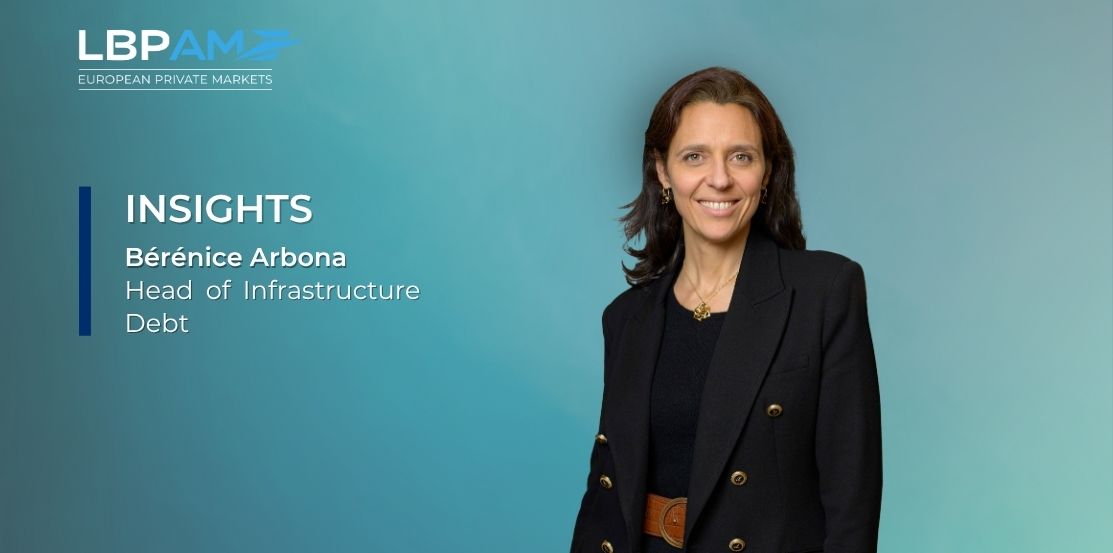Infrastructure Debt gains ground in Europe
09.10.2025|3 min

As geopolitical shifts and energy transitions reshape global priorities, Europe emerges as a key destination for infrastructure debt investment, says Bérénice Arbona, Head of Infrastructure Debt Bérénice Arbona at LBP AM European Private Markets (“EPM”).
In the roundtable “‘One Big Beautiful’ asset class” hosted by Infrastructure Investor, seven industry professionals explored how infrastructure debt is evolving in response to global legislative and economic changes. While the spotlight often falls on the US, Europe is quietly building momentum—and Bérénice Arbona believes the region is ripe with opportunity.
“Conditions are good in Europe thanks to continued commitment to the energy and digital transitions, a shared desire to reinforce European sovereignty and important national investment plans such as those that have been announced in Germany and the UK,” she explains. “All of that has created a strong pipeline.”
Redefining infrastructure in a changing world
This momentum is reflected in fundraising figures. Of the $6.2 billion raised globally for infrastructure debt last year, $5.3 billion came from European managers. Arbona notes that Canadian investors are increasingly turning to Europe as a counterbalance to the US, while interest from Asia remains strong.
“There is a good opportunity right now to redefine the geographical mix of your investor base,” she adds.
Data centers continue to stand out as attractive investments, provided they meet key credit criteria such as location, construction quality, and contract strength. ESG considerations are also central to Arbona’s approach: “ESG is fundamental to any credit analysis,” she says. “Especially when it comes to water and energy usage.”
As the definition of infrastructure evolves to include AI and supply chain assets, Arbona offers a guiding principle: “The best definition we have found for infrastructure is assets that fulfill essential needs. Those needs are changing, of course… But while the assets themselves may change, the fundamental characteristics do not. And that all comes back to this issue of essentiality and long-term demand.”
Want to dive deeper into the full roundtable discussion?
